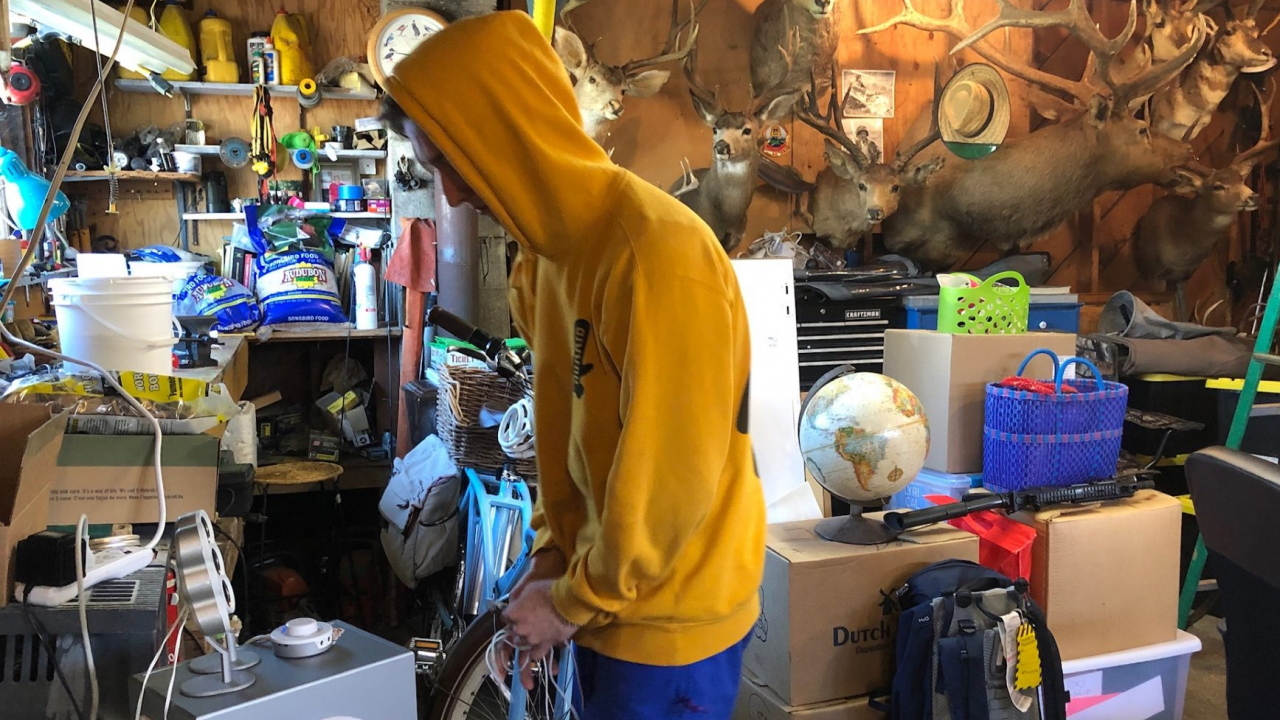
LIVERPOOL, N.Y. (NCC NEWS) – John Ropp’s hands are filled with cords and speakers. The 20-year old is back at his parent’s house, and he had to bring his music production studio with him. Bass can be heard emanating from the family garage. Inside, the walls are a reminder of the contradiction of the moment. Ropp’s dad has more animals from hunting trips on his wall than can be counted.
“Making music in the garage. I don’t exactly have a desk. I do have an office chair, and I make it work. It’s a little cold in here. Not the same, but COVID-19 man, we gotta stay safe”
Ropp goes to Lewis & Clark College in Portland, Oregon, but the outbreak of COVID-19 sent him four hours south back home to Ashland. The town of 20,000 sits just 14 miles from the California border. While home, Ropp has continued producing music. He makes beats, the instrumental tracks that lay the base for the biggest tracks in hip hop. It starts with individually created melodies or snippets of songs that are copied. This process is called “sampling”.
“I usually make beats when I hear something new that I have never heard before.” Ropp said “Or if I am in a certain mood it is easier to make beats with certain emotions in it.”
Ropp’s main success so far has been finding rappers to work with in Portland. However, the business of hip-hop is changing which pushes young producers like Ropp to different avenues.
“Most beat sales are done on a website called Beat Stars. There are a few different versions of it that are much less popular. And people can upload their beats to Beat Stars with a price already set,” Ropp said. “I think it may help a bit because a lot of production happens in person. So people who cannot go meet with their normal producer in person go online.”
It could be an opportunity, but Ropp also stayed focused on himself. He said that no matter how long social distancing measures stay in place, he wants to make at least one beat per day.




